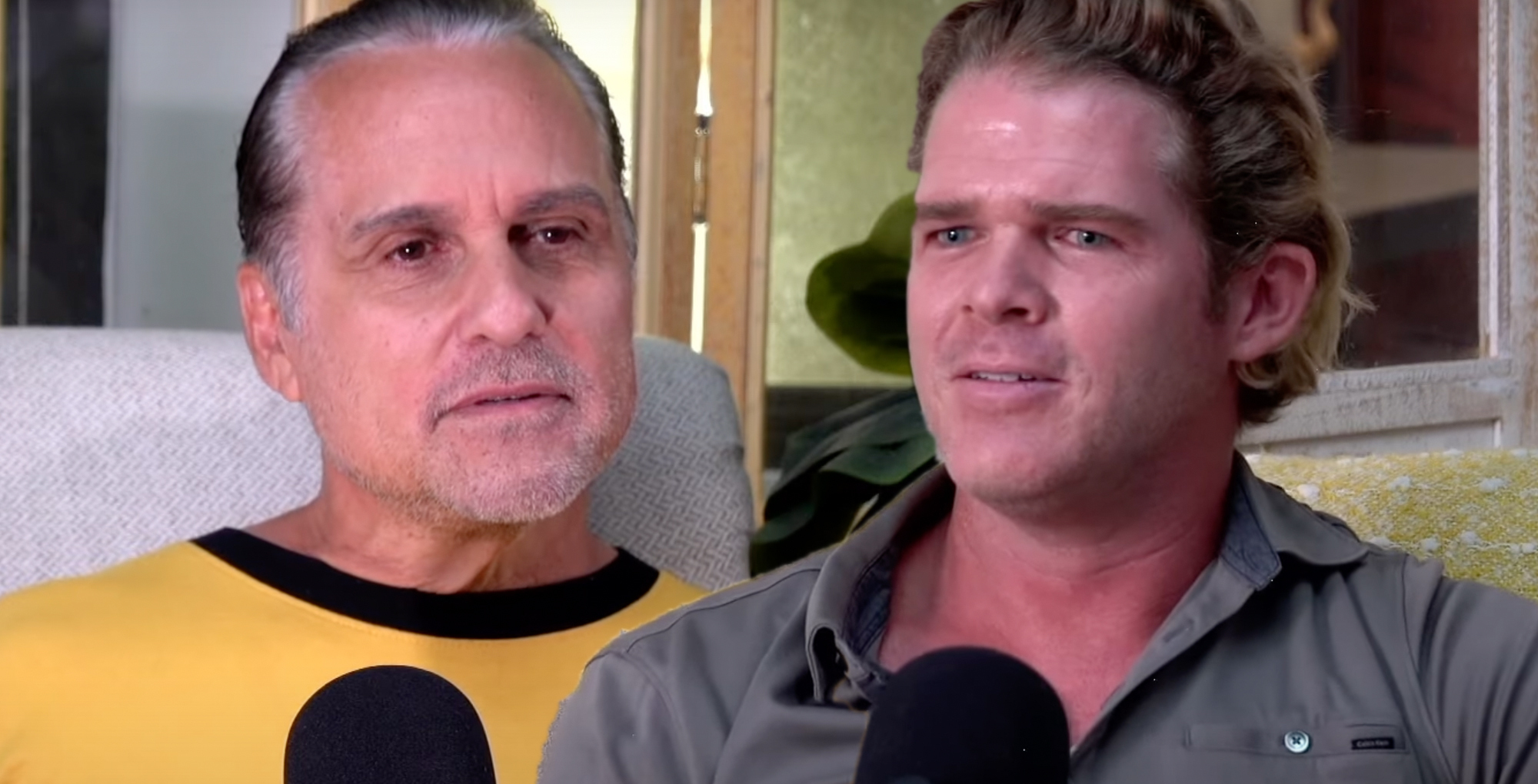
Maurice Benard and Jacob Jensen.
General Hospital’s Maurice Benard has a knack for hearing about or meeting people that the mainstream may not know and intuitively tapping into something important they may be able to share with the audience of his video podcast, State Of Mind. This week, the actor sat down with a professor of sports psychology, Jacob Jensen, and they talked about the pressure athletes and regular people put on themselves to achieve greatness.
Jacob Jensen is a true Renaissance man. He was a smart kid, a gifted athlete who put himself through college by modeling and doing commercials, and he earned a Ph.D. and Master’s degree in Sports Psychology. Benard (Sonny) wanted to know about the kind of pressure from being the smartest kid in the room.
Jensen didn’t realize that it was the pressure that he put on himself that was worse until he had a meltdown in the last semester of college. “I did have a panic attack on the tennis court when the world felt like it was spinning out of control. I was profusely sweating,” he shared. He knew he had to do something and fast. “I, literally, had to be asked to be taken out of the match. And, as a college athlete, that is unheard of.”
He went on to describe the despair that he felt at the time. “To get to the point where I had to remove myself from that situation was what I had to do, but it was also very devastating because that was my identity,” he explained. “I was a tennis player. I was a college athlete. So, to remove myself from that was incredibly difficult.”
The budding professor would learn that what he was going through was much more common than he thought, and it would set the stage for his future career. “I was having what we call the Yips,” he shared with Benard. “I don’t know if you are familiar with that, but it is a term that is used.”
Jensen went on to detail the symptoms to the host, and they resonated with Benard’s own anxiety attacks. “It started with golfers,” he explained. “Professional golfers who couldn’t make a simple putt. That’s called a putting Yips. It is literally when you lose control of a motor pattern that you have done for years. Baseball players might get the throwing Yips where they can’t throw the ball. A volleyball player might get a setting Yips where they can set the ball.
“When you are accomplished at something,” the sports psychologist continued, breaking it down in terms that Benard would recognize, “it would be like you going on set, and you can’t perform. So, after I finished college, I just looked to myself and thought, the mind is powerful enough to destroy a performance, to make it to the point where I couldn’t perform a simple skill that I had performed for years. There has got to be a reverse of that. That you can counter that.
“That is where I went into sports psychology,” Jensen said. He noted the moment that the switch went off inside. “Because there have got to be things that I could have done, I could have worked on, to combat that.
“There are a lot of discussions as to whether it is physiological or psychological,” he reflected on that dark period. “Looking back, I would trace it to all the pressure I was putting on myself. I wanted to succeed so much. I was scared of failure. Failure was the worst thing as an athlete and as a student. All of that had just compounded over the years to the point that the Yips happened. To me, the Yips was my version of a breakdown.”
Benard shared a similar experience that he had during the Covid lockdown during a bonding experience with his son, and Jensen agreed. “Like with you, it didn’t happen because you were a professional athlete, it happened when you were going out with your son to shoot a basket or play ping pong. So, I think it impacts way more people than we realize and how paralyzing anxiety and stress can be.”
Benard wanted to learn more about Jensen’s background. The two discussed his Mormon upbringing in Utah, growing up with a twin sister, going on a two-year mission throughout Switzerland, and the joy of being challenged through academics.
The professor shared the perils and benefits of having a modeling career (something the host knows a thing or two about) while living in Miami, and how getting bit by the acting bug inspired another move to California. Now, he is thriving, working as a producer, actor, and sports psychologist. Catch the entire interview here.
To learn more about Jacob Jensen, fans can follow him on Facebook, Instagram, and X (formerly known as Twitter). To follow State Of Mind and subscribe, go to YouTube, Instagram, and Twitter. Fans can now purchase inspirational merchandise for Benard’s State Of Mind. Check it out.
While Katelyn MacMullen is happy that Chad Duell is pursuing his heart's desire, she's sad… Read More
Jordan must live…at least for a little while longer. Read More
Fans decided that if Poppy slept with an extremely young Finn and Luna was the… Read More
Billy also has thoughts. Read More
The adults around Wiley and Amelia are acting crazy. Will someone step up for them? Read More
Charleson's co-stars paid a special tribute to her on their podcast. Read More